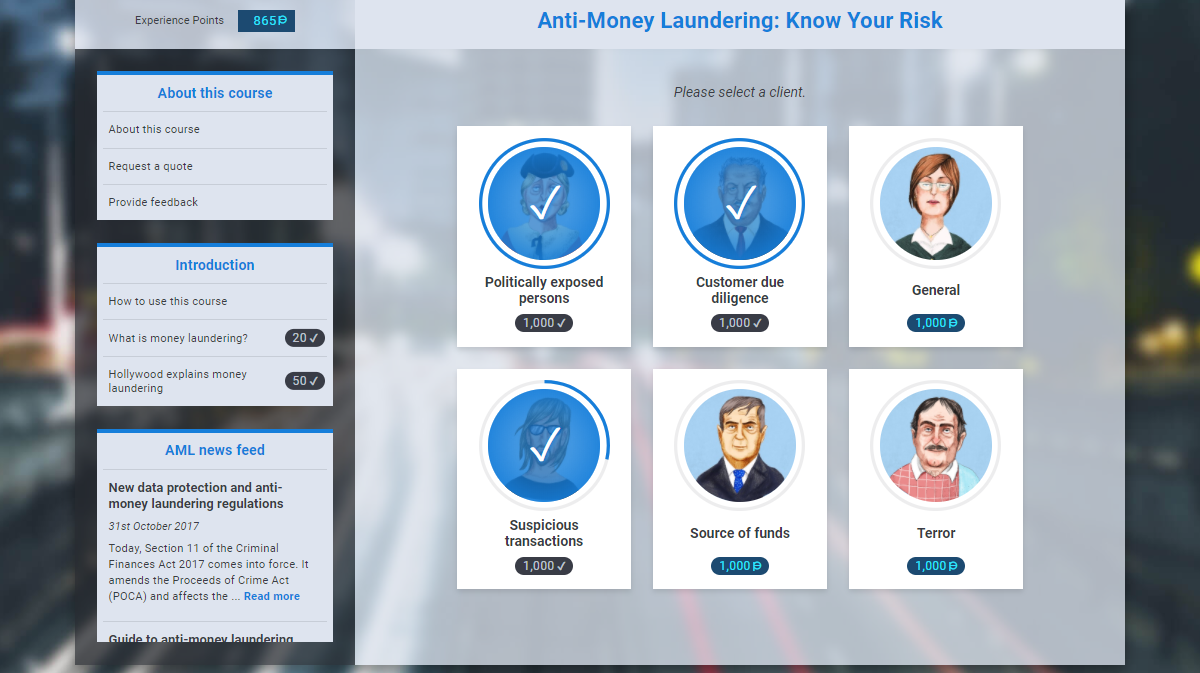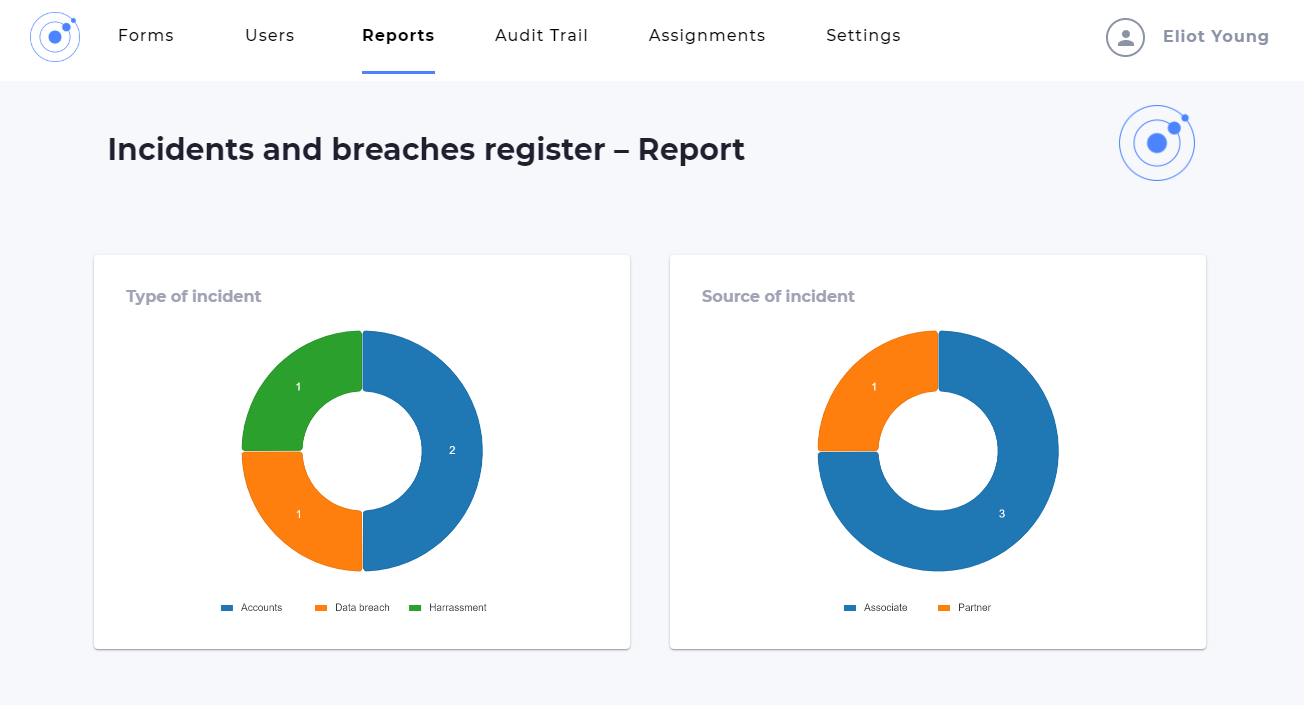
On 10 January 2020 The Money Laundering and Terrorist Financing (Amendment) Regulations 2019 came into force. This statutory instrument updates the UK’s existing anti-money laundering legislation to take account of the Fifth Directive. With the UK due to exit the European Union just three weeks after, what will the future of money laundering regulation look like?
In this webinar, our experts gave guidance on the application of the Fifth Directive in the UK and what to watch out for in the post-Brexit UK money laundering regime.
The webinar covered:
- What will the future of money laundering regulation in the UK look like?
- What are the key changes under the Fifth Directive?
- Answering questions from registrants
VinciWorks’ AML training suite

In advance of the Fifth Money Laundering Directive coming into force, VinciWorks will update all of its anti-money laundering courses to accurately reflect the latest regulations. This includes our gamified course, AML: Know Your Risk. The course takes the risk-based approach mandated by the Fourth Money Laundering Directive and drops users into real life, immersive scenarios to test their knowledge, understanding and ability to uncover risks of money laundering hidden in everyday transactions.















